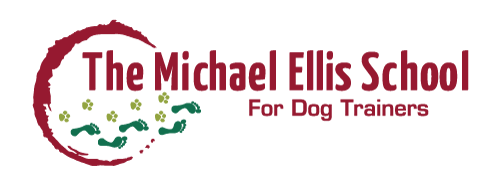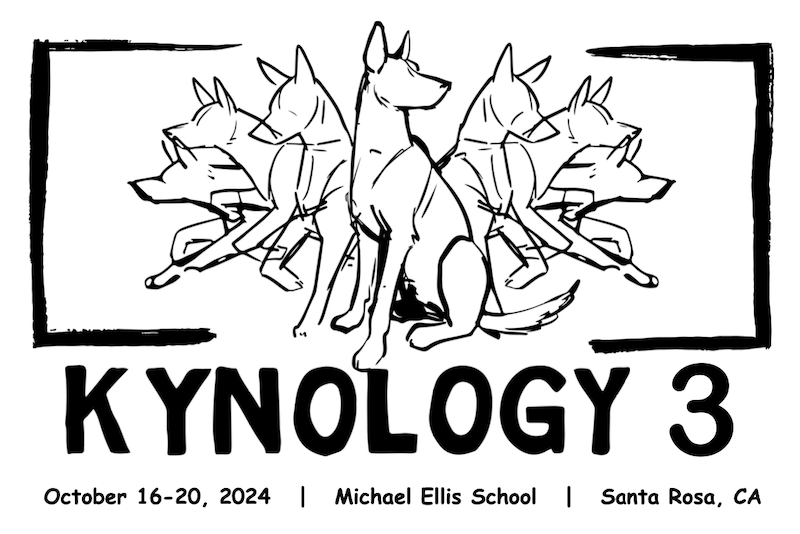Kynology Symposium Three, October 16-20, 2024
$1,000.00 – $2,000.00
The Michael Ellis School for Dog Trainers
3641 Stony Point Rd.
Santa Rosa, Ca. 95407
Email info@michaelellisschool.com if you have additional questions before registering.
Description
A five-day conversation about dog training with Michael Ellis, Forrest Micke, and Stewart Hilliard. This event will be
an exploration of the science, historical development, and practical technique of the craft. The presenters will also
introduce a new conceptual organization for modern dog training, and a framework they refer to as functional
aversive control. The event will be anchored by presentations from Dr. Hilliard about specific behavior and training
topics, but only loosely scheduled so as to permit discussion to “flow” as interests and events guide it. Organization
will be unconventional—There will be no “handling slots. Participants are welcome to have their dogs with them on
campus, but their dogs will not be worked as a part of the symposium. Supporting the lectures will be practical
sessions with select dogs made available by their owners for the event, to show the principles and operations and,
most importantly, the training progressions as response requirement criteria are advanced.
With registration for the event will come access to a preparation course of two lectures by Dr. Hilliard to be studied by
participants online prior to the event. On the evening of Tuesday October 15 th there will be an ice-breaker (for in person
attendees) and immediately following Dr. Hilliard will present a review lecture summarizing Topics 1 and 2, and
answer questions from participants (for both virtual and in person attendees).
There are two options for attendance—
- Live in-person attendance at Michael Ellis School in Santa Rosa—Registration fee $2,000.00
In addition to the main content of the event, live attendees will have the option to attend morning training
sessions with the presenters and our staff each day before the official presentations start. These sessions
allow participants to see much of the content put into action and ask additional questions.
Live attendees also have access to social gatherings that take place after class. - Virtual attendance via livestream—Registration fee $1,000.00
Virtual attendees have access to the main lectures and discussions of the event, and will have the
opportunity to ask questions during the event.
The morning training sessions will not be a part of the virtual registration.
Included with their registration fee, all registered attendees (in person and virtual) will have access to a recorded
version of the proceedings, to be made available online after the conclusion of Kynology 3, for one year.
ONLINE KYNOLOGY 3 SYMPOSIUM PREPARATION COURSE
Topic 1—The Lessons of Dog Spit– Pavlovian Conditioning
The functioning of the brain and the measurement of dog spit; why Pavlovian Conditioning is not as simple as you
were taught it is.
Topic 2—Consequences, Shmonsequences– Instrumental Conditioning
So what’s the deal with Instrumental versus Operant Conditioning, and how does the contingency square steer us
wrong?
LIVE KYNOLOGY 3 SCHEDULE
October 15 th
5:00 – 8:00 PM
Catered icebreaker (in person attendees), and review lecture by Dr. Hilliard, plus
Topic 3— Ivan again? That asshole? – Misbehavior/Pavlovian Interference
Why and how Ivan (Pavlov, not Balabanov) is out to f%#k over you and your dog.
(the review lecture is for both in person and virtual attendees).
October 16 th
7:30 AM Morning training session (in person attendees only)
9:30 AM Official Presentation starts
Topic 4—Taking the piss out of BF Skinner– Aversiveness
The distinction between hedonic and functional definitions of aversive control, and how a + reinforcer can cause
stress, and how a + punisher can bring comfort.
Topic 5—The Harshing of the Mellow– Punishment
The changing “truth” about punishment; the distinction between Sidmanian fallout and specific response suppression
by response-dependent + punishment.
October 17 th
7:30 AM Morning training session (in person attendees only)
9:30 AM Official Presentation starts
Topic 6—How come Pat Nolan wears shoes? — Escape and Avoidance
How escape and avoidance bring the Pavlovian and Instrumental threads together, and how a stimulus that doesn’t
feel good can result in + reinforcement effects.
Topic 7—Good news– Signaling + Reinforcement
Marking target responses with secondary reinforcers, the delay to reinforcement versus credit assignment problems,
and the concept and methods of “insulating” target behaviors from the harmful effects of + reinforcement.
October 18 th
7:30 AM Morning training session (in person attendees only)
9:30 AM Official Presentation starts
Topic 8- Bad news– Signaling all that other Shit
Marking target responses with secondary punishers, and omission and safety cues; the answer to the question “when
does the dog not getting something start?”
October 19 th
7:30 AM Morning training session (in person attendees only)
9:30 AM Official Presentation starts
Topic 9—Control is Freaky—Learned helplessness
The importance for the dog of prediction and control of stressors; the learned helplessness effect, the dire
consequences of a lack of control of stressors, and why the learned helplessness effect is a weak argument for why
not to use aversive control in dog training.
October 20 th
7:30 AM Morning training session (in person attendees only)
9:30 AM Official Presentation starts
Topic 10—Approach to Dog Training
Pulling it all together into a tightly integrated and pragmatic system for training dogs based on scientific principles and
data, including the preparation for, and the use of, functionally aversive contingencies and minimally hedonically-
aversive outcome stimuli to suppress undesirable responses and “ruggedize” the trained dog’s repertoire.
Additional information
| Attendance Type | In-Person, Virtual |
|---|
Event Details
Start date: October 15, 2024
End date: October 20, 2024

